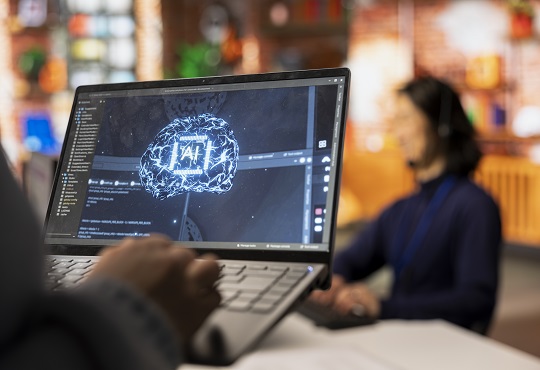OpenAI CEO Makes Major U-Turn, says Current Computers are...
CIOTech Outlook Team | Monday, 30 June 2025, 07:01 IST

- Sam Altman reverses stance, says current computers "were designed for a world without AI."
- OpenAI’s new pocket-sized, screen-free device aims to ship 100 million units by 2026.
- Jony Ive’s design leadership fuels speculation of a revolutionary AI device rivaling the iPhone.
OpenAI CEO Sam Altman now believes that existing computers are ill-equipped for the demands of advancing artificial intelligence, marking a significant departure from his earlier stance that new hardware wouldn’t be necessary for the AI revolution.
Speaking on his brother Jack Altman’s podcast, Sam declared that computers, software, and hardware "were designed for a world without AI," emphasizing that user needs are evolving rapidly in an AI-driven era. This shift aligns with growing industry sentiment, as Google CEO Sundar Pichai has also highlighted current hardware limitations in achieving Artificial General Intelligence (AGI).
Last year, Altman used those words to assure the users of AI advancements: there would be no need to replace the devices, and they would be happy to replace it with new hardware only when it is necessary. However, he now envisions future systems that are "way more aware of their environment" and have "more context in your life," moving beyond traditional screen-based interactions like typing.
Altman disclosed that OpenAI is also investigating novel interaction paradigm and are in the process of developing couple of ideas which they are excited about, and the shift towards AI systems that offer full picture of life as well as make decisions on a broad sense of the situation will have to go through a transition period of adjustment by users.
Also Read: AWS Opens Innovation Hub to Boost Cloud and AI in Asia Pacific
This strategic pivot coincides with OpenAI’s collaboration with former Apple Chief Design Officer Jony Ive, who joined the company to lead design efforts following OpenAI’s $6.5 billion acquisition of Ive’s AI device startup.
The first device, slated for release by late 2026, is described as a pocket-sized, screen-free, contextually aware "third core device" alongside laptops and smartphones. Altman predicts it will ship 100 million units "faster than any company has ever shipped something new before," distinguishing it from glasses or wearable technology, in line with Ive’s vision to move away from screen-dependent designs.
Their partnership has fueled speculation about a groundbreaking AI device poised to rival the iPhone’s transformative impact.




.jpg)